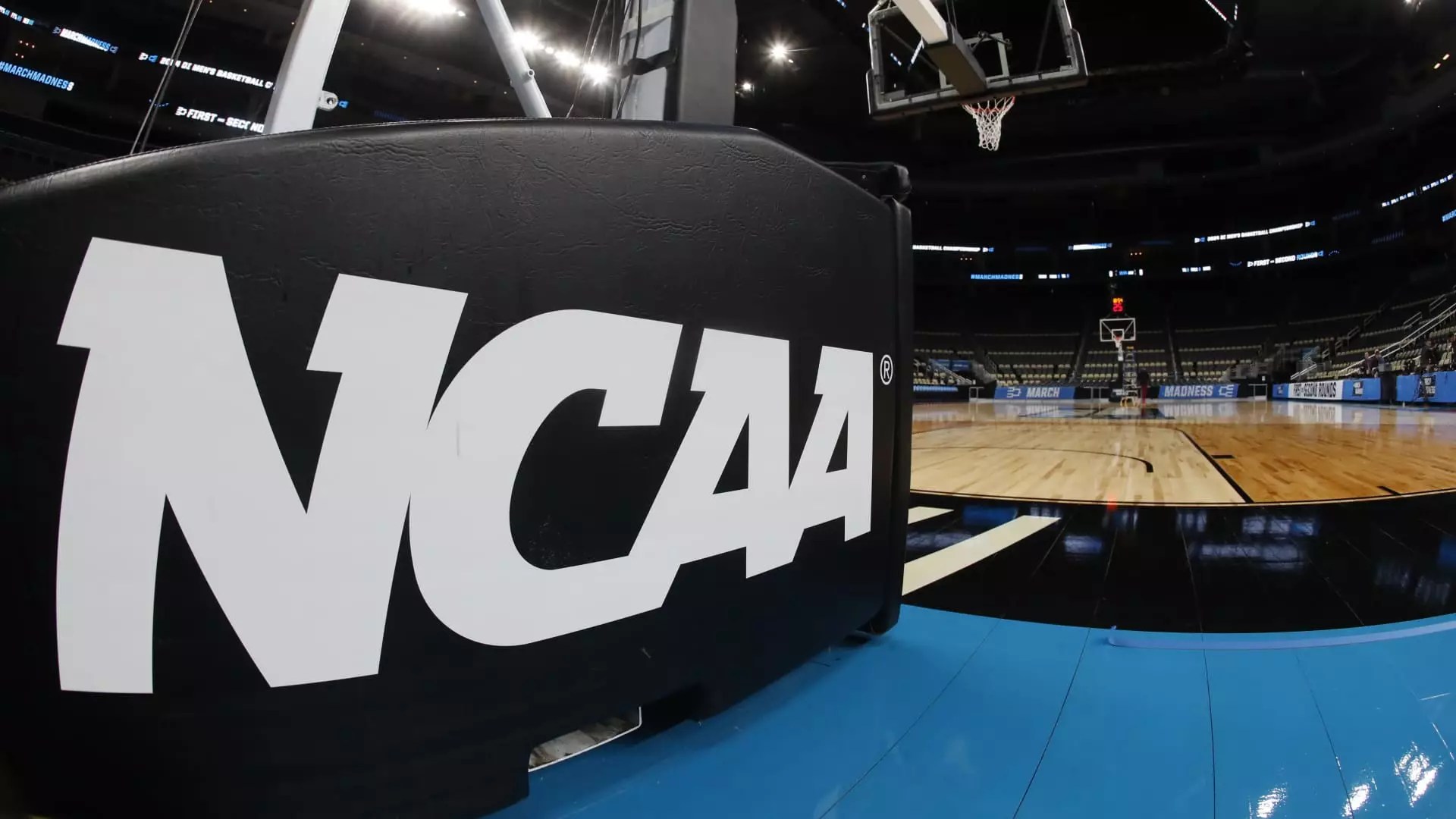The National Collegiate Athletic Association (NCAA) recently made headlines by updating its policy regarding transgender student-athletes, explicitly barring trans women from competing in women’s sports. This move coincided with an executive order from President Donald Trump aimed at defunding schools that permit trans women to participate. The implications of this policy change extend beyond mere competitive eligibility, influencing the broader conversation about gender identity in sports and education.
Under the newly implemented rules, individuals assigned male at birth are permitted to practice with women’s teams and receive corresponding benefits like medical care, but they cannot take part in official competitions. Conversely, all genders are allowed to compete on men’s teams, although male athletes taking testosterone must go through a detailed medical exemption process. Notably, students assigned female at birth who undergo hormone therapy or take testosterone face exclusion from women’s teams as well. This shift marks a significant pivot from the NCAA’s previous adherence to Olympic standards, where eligibility for trans athletes was determined by different national governing bodies.
NCAA President Charlie Baker emphasized the necessity of establishing “clear, consistent, and uniform eligibility standards” that transcend the imprecise landscape of varying state laws and judicial decisions. The association represents over 1,100 colleges and universities, enrolling more than half a million student-athletes across the nation. By aligning with the executive order issued by Trump, the NCAA asserts the importance of a national standard in what has become a contentious and polarizing issue in the realm of collegiate athletics.
Critics of the NCAA’s policy shift argue that it enforces a reductive binary view of gender, as described by Chris Mosier, a noted transgender triathlete and advocate. Mosier articulates concerns that the new rules essentially erase the identities of transgender and non-binary individuals, reflecting an attempt to legislate against their very existence. The dialogue surrounding gender and its complexities is increasingly relevant, with many asserting that policies ought to adapt to reflect more nuanced understandings of gender identity. Furthermore, this ruling also raises significant questions for intersex individuals and those whose hormone treatments are medically necessary, as they may unintentionally find themselves marginalized within these restrictions.
As the NCAA moves forward, it faces the challenge of navigating an increasingly divisive social landscape where issues of gender identity are at the forefront of public discourse. The implications of this policy are far-reaching, not just for the athletes affected, but also for the culture of sports at large. Stakeholders must engage in constructive discussions that foster inclusivity rather than exclusion, paving the way for a more comprehensive understanding of gender in sports. In doing so, they can create an environment that honors the diverse identities of all athletes and champions the spirit of competition that sports embody.
The NCAA’s recent decision regarding transgender athletes calls for a critical examination of not only the policies governing athletics but also the broader societal attitudes towards gender identity. As organizations like the NCAA set stringent guidelines amidst a shifting political landscape, it is imperative to ensure that the rights and identities of all student-athletes are respected and validated. True progress in sports will come when every athlete, regardless of their gender identity, can compete on equal footing and be celebrated for their unique contributions.


Leave a Reply